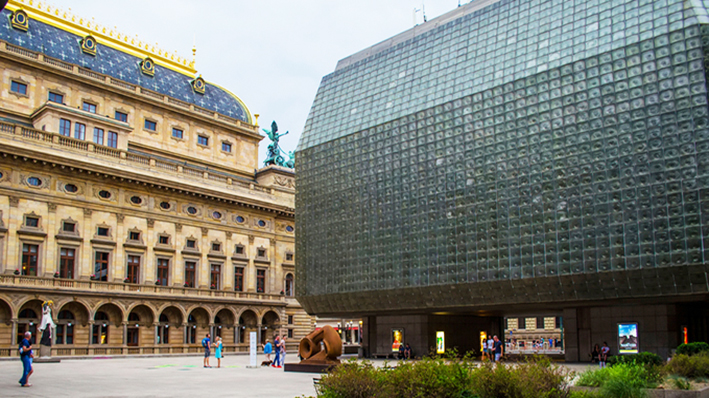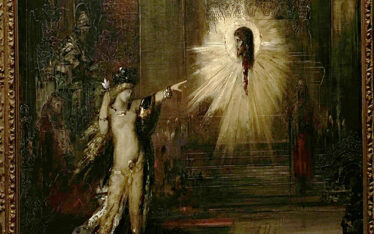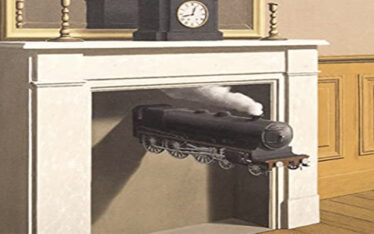
Andrews Craudino/Shutterstock.com
Prague has always been a special place. When the Allies bombed Dresden near the end of World War II, they decided to save historic Prague.
The city survived and remained architecturally intact.
PRAGUE SPRING
The Czechs value such resilience. They have a passion for it.
In 1968, came an energized national movement – the extraordinary Prague Spring that interjected a breath of liberalism and hope into ordinary life.
Czech leader Alexander Dubček displayed undue optimism. He naïvely believed former Soviet leader Nikita Khrushchev when he said every communist nation should define their own form of communism.
relative views
Dubček enacted much welcomed reforms. He proposed “socialism with a human face” and hoped Moscow would buy in. But Leonid Brezhnev, Khrushchev’s hardline successor, held a different point of view.
Thus, the Spring became short lived.
August 1968, over half-a-million Warsaw Pact troops and five-thousand Soviet tanks swarmed en masse gathering at the Czech borders. They then ruthlessly invaded.
STANDING TALL
Still believing in the Prague Spring, brave young Czech women defiantly confronted the intruders.
Joined by all sorts of courageous friends, these young protestors in miniskirts strolled up to the tanks that filled the central squares of the city.
Those people, who were able to react quickly, did and escaped to the west. Same as the principals in Milan Kundera’s The Unbearable Lightness of Being. For most who remained, it wasn’t by choice.
withstanding it all
Resistance lasted eight months until the communist forces totally clamped down. A brutal occupation followed.
Many intellectuals, locked out of their jobs, were forced to perform menial labor. An international journalist/future foreign minister had to stoke coal to heat buildings in winter. Doctors washed multiple stories of glass windows, just to survive.
But this period of painful emptiness also provided the inspiration for the creation of many cultural works that reflected the struggle.
A NEW DAWN
Twenty-one years later, in 1989, a glimpse of social daylight finally started to reappear. Hope returned to Prague. Amid Czechoslovakia’s Velvet Revolution, the Lanterna Magika theater, home to the avant garde, really glowed. Even through the darkest days of communist rule, the most innovative productions flourished here.
In a land, where freedom had again virtually vanished, the theater secretly stood as a beacon in the dark. This bastion of free expression became the heart and soul of the nation.
The Magic Lantern served as unofficial headquarters for the democratic movement. From within, leaders planned a relentless series of mass demonstrations and coordinated the ensuing civil unrest. They went on to reinstall the tenets of democracy without a shot being fired.
WEST WITH THE SUN
Zuzana’s mother, Lenka Novak, grew up in Prague in the late 1950s. Although she learned to survive under communist rule, her dream always was to live in a western democracy.
Once, in the early ‘80s, she came close to succeeding. Then, in the ’90s, Lenka’s dream changed with the times. She now loves Prague and wants to stay.
The city reawakened just before the millennium. Although still a volatile era, this Central European capital brims with plenty of opportunity and new beginnings. And for Lenka, she soon was to meet Will, a young American, visiting from West Berlin.
1993
Arriving in Prague on a crisp, wintry afternoon, Will rushes from the train station to his hotel. He checks in, drops off his duffle and heads straight to a state-run travel agency to book a short excursion for the coming weekend.
The aspiring architect is determined to visit Český Krumlov. This picturesque medieval village, often referred to as the Florence of eastern Europe, sits in the imposing shadows of a towering hillside castle dating from the 1200s.
Truly, a setting out of Kafka.
LUCK
The travel agency, however, flaunts bureaucracy at its worst. It operates at two speeds: slow and ultra slow. Will remains stuck in a short queue that doesn’t move. When the clock strikes five, it is simply too late. The agency has closed for the day. The last client in line ahead of him, however, catches Will’s eye.
This young woman with an educated smile turns out to be Lenka with her full head of puffy brown hair and blue eyes. She is dressed in jeans, sneakers and a gray-tweed blazer. Ahead of her time.
Will fumbles his first two attempts to break the ice. But he succeeds on his third when Lenka cautiously agrees to join him for a coffee.
DICHOTOMY
Conflicting thoughts simultaneously dance through Lenka’s head. Quite a mixed signal. Hard to grasp all it implies.
“A great chance for me to practice English with an American,” she thinks, cautiously sizing him up. “But I know we mustn’t be seen socializing with westerners in public.”
With those thoughts, several warm glances and very few words exchanged, the two walk out separately. Each shoots a subtle glance over one shoulder and heads on. A minute later and ten meters up the street, Lenka and Will meet up again in time to round the corner together. And to actually stay together for another ten years.
DISCRETION
Lenka eventually shared the story when her daughter when Zuzana was old enough. A total surprise to Zuzana, who was always asking about her father. Looking for answers. But never getting any.
After Lenka and Will broke up, he traveled back to the States totally unaware Lenka was pregnant. She never said a word. Her secret. Had he known, he might have married her. Lenka would have had that ticket to the west she once craved so badly. But the couple had grown irreconcilably apart.
And, at the time, Lenka didn’t have the foresight to realize how important it would be for Zuzana to enjoy a healthy bond with both parents. What she did have was the journal Will left behind.
another life
Early in 2019, on turning eighteen, Zuzana already works at Lanterna Magika, a long-standing experimental theater, renowned for its multimedia repertoire and pro-democratic politics. And soon, like her mom before her, she too unexpectedly meets a young American.
When Phillip, a new intern at the theater, heads to one of the city’s elegant old cafés to meet a friend, Zuzana discreetly follows. But the friend has instead texted his regrets. Phillip, clearly disappointed, tries hard to conceal it.
“An unexpected change of plans?” asks Zuzana astutely. Having followed Phillip inside. “So… where in the States are you from?”
IN A FLASH
Zuzana blinks her eyes to bring herself back to 2022 and the present. Back to the elegant old café in Prague, and the conversation she had going with Phillip.
“Must be a similar adjustment for you coming from California,” presumes Zuzana, picking up exactly where they left off.
“Sure. At times,” agrees Phillip, sitting up straighter to improve his posture. “I tell myself never to look back. Luckily, Prague has given me a sense of structure and discipline.”
cobblestone streets
“I hate structure,” admits Zuzana, traversing both worlds. “I feel like a ghost garbed in white – one haunted by her past.”
“You’re playing with me,” replies Phillip as he scratches his head. “You and the old cobblestones on these narrow windy streets. Makes me feel I’m traveling back in time at every turn.”
“You clearly are,” insists Zuzana. “But not for long.”
CZECH ELECTIONS
“Maybe at times,” admits Phillip as his mind races forward. “So what do you think of your elections here with the Communist Party finally eliminated from parliament.”
Zuzana didn’t react. Nor did anyone. As if nothing happened. As if the communists had never existed. Church bells remain hauntingly silent. Wenceslas Square was abandoned. No speeches, no music. A dearth of celebration, despite these startling results.
For the first time since the end of World War II, the communists achieved a zero presence in the national government. Didn’t win a single seat and are destines to just quietly fade away.
act iii
A new emerging world is taking shape. A fresh life, evolving technology, resorted priorities, tempered emotions.
To most, the communist era feels as if it happened a hundred years ago. To many, it did. But now, Zuzana and Phillip are eagerly prepping their contemporary stage adaptation of Franz Kafka’s Das Schloss (“The Castle”) to feature a young woman in the lead – possibly even Zuzana.
Diametrically opposed cultures. Similar souls. And there’s no looking back.
About the Article
A multigenerational look at life surrounding a landmark theater in Prague.



